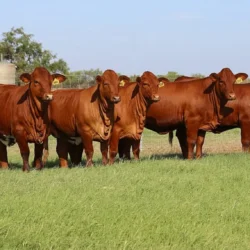Johannesburg, South Africa – South Africa has officially ushered in a new era for its agricultural sector with the commencement of the Plant Breeders’ Rights Act, 2018 (Act No. 12 of 2018), effective from June 1, 2025. This significant legislative update, proclaimed in the Government Gazette on June 6, 2025, repeals the outdated 1976 Act and aligns South Africa’s plant variety protection framework with international standards, specifically the 1991 UPOV (International Union for the Protection of New Varieties of Plants) Convention.
The Department of Agriculture announced the new Act’s commencement following President Cyril Ramaphosa’s signing of the proclamation and the Agriculture Minister’s approval of the associated regulations. This move is poised to enhance food security, support rural development, boost agricultural productivity, and foster job creation through increased investment in plant breeding innovation.
Key Revisions and Enhanced Protections
The updated Act introduces a robust set of provisions designed to bolster the rights of plant breeders and stimulate innovation within the sector.
- Expanded Scope of Protection: Previously limited to prescribed genera and species, the new Act now extends protection to plant varieties of any genera and species, provided they meet the criteria of being new, distinct, uniform, stable, and having acceptable denominations. This broadens the horizon for breeders, encouraging the development of a wider range of crops.
- Enhanced Enforcement Rights: The Act brings in stronger provisions for the protection of essentially derived varieties, compulsory licensing, and overall enforcement rights for breeders, offering a more secure environment for their intellectual property.
- Extended Protection Periods: To further incentivise long-term investment in plant breeding, the Act extends protection periods to up to 30 years for fruit trees, vines, sugar cane, and potatoes, and 25 years for all other crops. This provides breeders with a more substantial return on their research and development.
- Advisory Committee Establishment: A key institutional change is the establishment of an advisory committee. This committee will comprise a diverse group of stakeholders, including breeders, farmers, and intellectual property law specialists, ensuring a balanced and informed approach to the implementation of the Act.
Procedural Streamlining and Provisional Protection
The new legislation also introduces crucial procedural changes aimed at streamlining the application process for plant breeders’ rights.
- Automatic Provisional Protection: A significant improvement is the introduction of automatic provisional protection from the date of filing a plant breeders’ rights application. Under the previous Act, applicants had to specifically request provisional protection and were prohibited from commercialising the variety while their application was pending.
- Equitable Remuneration: While applicants cannot sue for infringement during the provisional protection period, they are now entitled to claim equitable remuneration from anyone exploiting the variety through acts reserved for the rights holder. This provides a level of financial safeguard for breeders during the application phase.
Farmers’ Privilege: A Point of Deliberation
One of the most debated aspects of the new Act is the expanded scope of the farmers’ privilege exception. The Act now grants the Minister of Agriculture the power to define which categories of producers may use a protected variety. This marks a notable shift from the 1976 Act, which narrowly limited farmers’ privilege to the re-use of legitimately obtained harvested material for propagation on the farmer’s land.
This broadened scope has raised concerns within the plant breeding community, with ongoing discussions about its potential impact on breeders’ rights, despite provisions requiring the Minister to safeguard their legitimate interests. The scope and regulation of the farmers’ privilege exception are expected to remain a key point of discussion as further regulations are developed.
The new Plant Breeders’ Rights Act represents a significant step forward for South Africa’s agricultural sector, promising to foster innovation and enhance the country’s position in the global plant breeding landscape. As the associated regulations evolve, stakeholders will be closely watching how the balance between protecting breeders’ rights and supporting agricultural development is maintained




